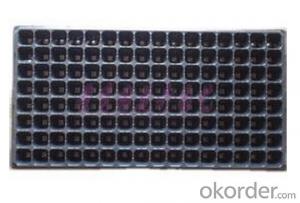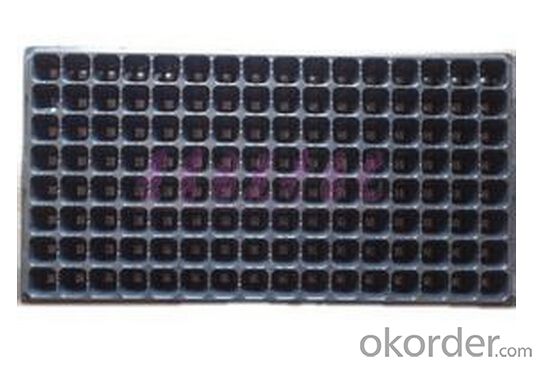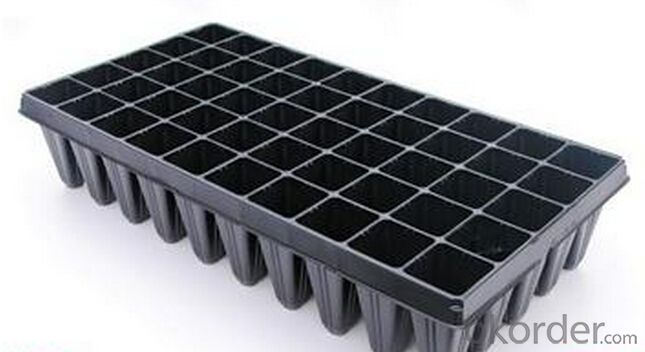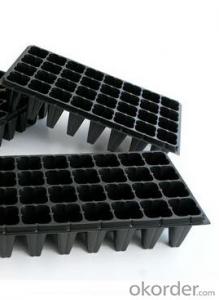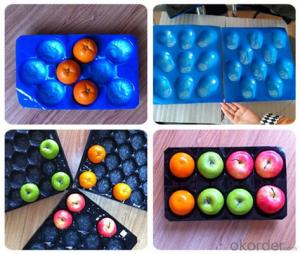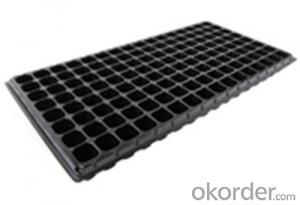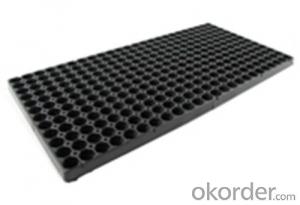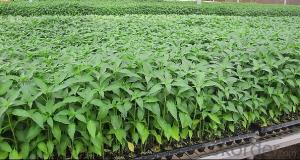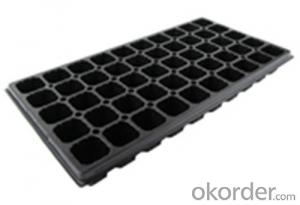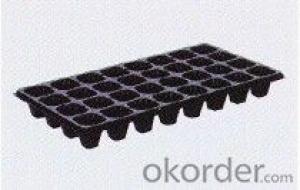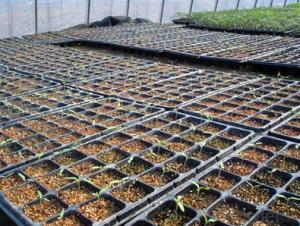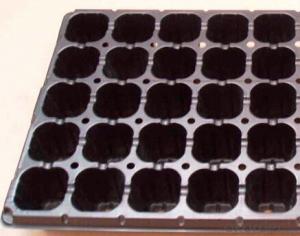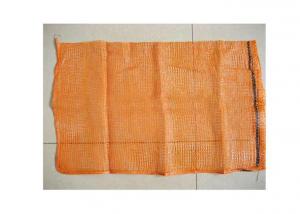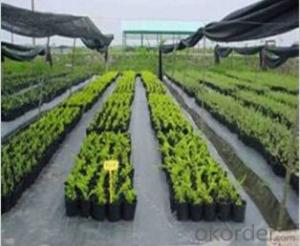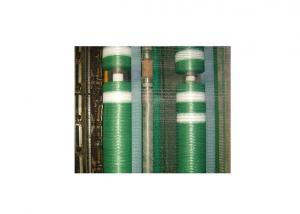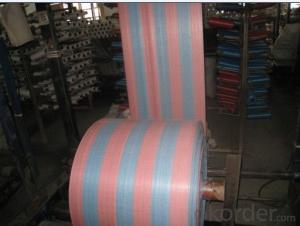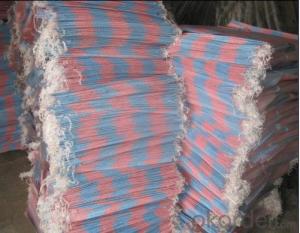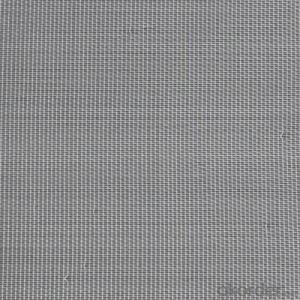Plant Plastic Seedling Tray with large dimension
- Loading Port:
- Ningbo
- Payment Terms:
- TT OR LC
- Min Order Qty:
- 10000 pc
- Supply Capability:
- 10000000 pc/month
OKorder Service Pledge
OKorder Financial Service
You Might Also Like
Introduction:
We have quite different models of seeding trays, such as the 32 cells, 50 cells,72 cells, 98cells, 105 cells, 128 cells ,200 cells . And they are made of HIPS or PVC , being used extensively in horticulture field , like cultivating Propagating Vegetable , flowers and other plant from seed.
Specification:
Mass propagation and Different product types are available, as below:
1.In-vitros in plastic bags with agar (Popular & Low Cost)
2.In-vitros in plastic cups with agar
3.In-vitros without agar
4.Plug plant in peat moss(With Low Infection Rate, High Livability, High Additional Value is recommended)
5.Rooted cuttings in Green-oasis
6.Paper-pot plugs
7.Bared-rooted young plants
8.Potplants
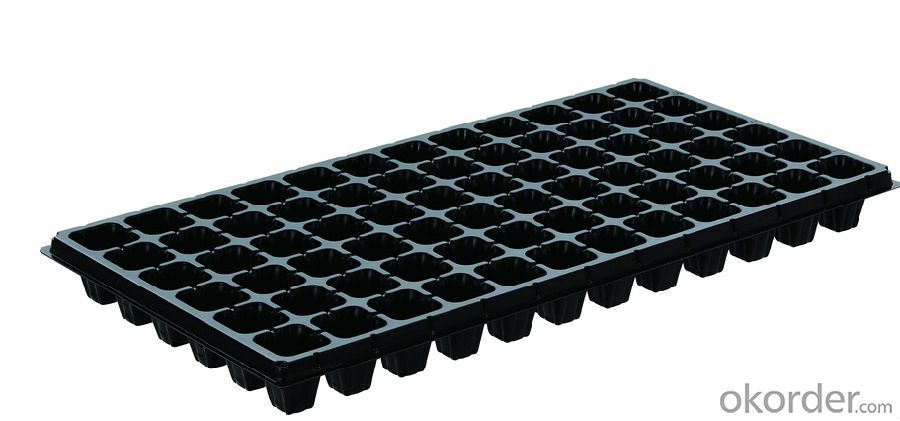
Function:
Environmental, non-poison, good air permeability, with aging resisting agent, long service life
Large capacity ,enough growing space for the root system
not easy to be deformed under high temperature
with holes at the bottom, to prevent the root from being rot by too much
with flume inside, the water reach to the bottom easily
suitable for the seed of the vegetable,flower,forest
FAQ:
How to pack it?
Packaging Details:each kit into a carton
carton size:43.5*27.5*14.5cm
10000sets/40'HQ
Delivery Detail:30days
- Q: What are the different types of plastic buckets used in agriculture?
- There are various types of plastic buckets used in agriculture, including feed buckets, water buckets, milk buckets, and grain buckets. These buckets are specifically designed to meet the diverse needs of farmers and help with tasks such as feeding livestock, providing water, milking cows, and storing grains.
- Q: Are nursery trays suitable for growing ground ferns?
- Yes, nursery trays are suitable for growing ground ferns. They provide a controlled environment for the ferns to grow, allowing for proper moisture retention and drainage. Additionally, nursery trays allow for easy transportation and transplanting of the ferns when needed.
- Q: Can agricultural plastic be used for beekeeping?
- Yes, agricultural plastic can be used for beekeeping. It can be utilized to construct beehive components such as frames, foundation sheets, and covers. However, it is important to ensure that the plastic used is suitable for beekeeping, as certain types may contain harmful chemicals or release toxins.
- Q: Can ground cover be used in both residential and commercial landscapes?
- Yes, ground cover can be used in both residential and commercial landscapes. Ground cover plants are versatile and can be used to provide erosion control, weed suppression, and aesthetic appeal in various types of outdoor spaces, including residential gardens, parks, office complexes, and shopping centers. They offer a practical and low-maintenance solution for enhancing the appearance and functionality of both residential and commercial landscapes.
- Q: I want to dye plastic ie. my xbox 360 controller.I've seen an article on how to do it but I can't track down any plastic dyes in the UK.
- Plastic has to be dyed when it is cast. When plastic is molded it needs to be bone dry, the amount of heat used will turn any available water to steam and make the plastic bubble. If there were a way to dye plastic it wouldnt be water based. Even if you could do it, it might be easier to just find one the color you want.
- Q: How does agricultural plastic affect crop maturity and harvest timing?
- Agricultural plastic can have both positive and negative effects on crop maturity and harvest timing. On one hand, the use of plastic mulch, row covers, and tunnels can create a favorable microclimate for crops, leading to earlier maturity and advanced harvest timing. This is especially beneficial in regions with shorter growing seasons or unpredictable weather conditions. On the other hand, if plastic is not managed properly or if it is left in the field after harvest, it can hinder crop maturity and delay harvest timing. The plastic can block sunlight, restrict airflow, and prevent proper irrigation, leading to slower growth and potential yield reduction. Furthermore, the improper disposal of agricultural plastic can also have environmental consequences, contributing to pollution and harming wildlife. Overall, the effects of agricultural plastic on crop maturity and harvest timing depend on its proper usage, management, and disposal practices.
- Q: when i wanna save a plate of food in the fridge do i use plastic wrap or foil??
- what are you saving? Plastic wrap is good for some foods and not for others. I only use foil for covering foods in the oven, and I always cover the pan with plastic wrap first. I try to use re-sealable containers. This saves money and the environment. chef robert culinary instructor author of chef robert presents romantic dinners for two
- Q: What are the advantages of using plastic weed barriers for weed control?
- Plastic weed barriers offer several advantages for weed control. Firstly, they effectively block the sunlight from reaching the soil, preventing weed seeds from germinating and reducing weed growth. Secondly, these barriers create a physical barrier that prevents weed roots from penetrating the soil, minimizing weed infestation. Additionally, plastic weed barriers help conserve soil moisture by reducing evaporation, which benefits the desired plants. Lastly, they are easy to install, durable, and long-lasting, providing a cost-effective and low-maintenance solution for weed control.
- Q: Are nursery trays reusable?
- Yes, nursery trays are typically reusable. They are made from durable materials such as plastic or recycled plastic and can be washed and sanitized between uses. This allows them to be used multiple times, making them a sustainable option for plant propagation and nursery operations.
- Q: Can ground cover be used in raised beds or containers?
- Yes, ground cover can be used in raised beds or containers. Ground cover plants can help suppress weeds, retain moisture, and provide a decorative touch to the raised bed or container. However, it's important to choose ground cover plants that are suitable for the size and depth of the raised bed or container, as well as the specific growing conditions.
Send your message to us
Plant Plastic Seedling Tray with large dimension
- Loading Port:
- Ningbo
- Payment Terms:
- TT OR LC
- Min Order Qty:
- 10000 pc
- Supply Capability:
- 10000000 pc/month
OKorder Service Pledge
OKorder Financial Service
Similar products
Hot products
Hot Searches
Related keywords
